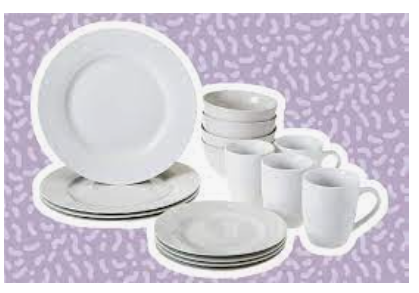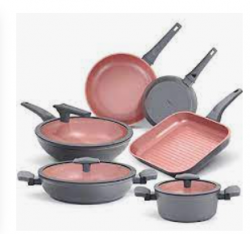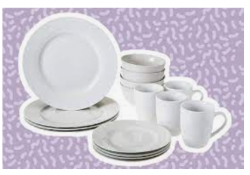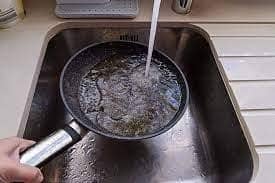Have you ever had the need to fry something? Bacon. Eggs, sausages, maybe even some fish fingers. One of the best things about Christmas is to chop up all the leftovers (including the stuffing, perhaps?) and fry it all up in what we British lovingly refer to as bubble and squeak, a reference to the noise it makes when you’re frying it in the pan. The only problem is when the thing you are trying to fry welds itself to the pan. This means a few hours of soaking or, inadvisably, sticking it in the dishwasher and hoping for the best. This was a significant issue for our ancestors, who lost hours of their lives trying to clean them. The same was true of the plates they used and the pots and pans. Making a stew or a soup could mean lots of scrubbing and moaning afterwards. However, the twentieth century was to bring with it a modern advance that has almost put a stop to all this kind of thing. It’s the introduction of the non-stick pan and the increased use of ceramic flatware and bowls. What fantastic invention made our lives so much easier when cooking?
It is the invention, and subsequent widespread use, of the Plasma Spray. There are lots of companies that provide this service, such as Poetons, for example. They take a superheated form of rubber and what they call composite materials and spray the pans with it. This can also be applied to ceramic plates to give them an extra sheen and gloss, plus it means that foodstuffs don’t stain the flatware and pan, like, say, a spaghetti bolognese can. This means the plates keep their good looks for a lot longer than in the past. However, It doesn’t stop them from smashing if you drop one on a hard floor surface!
Frying pans are where the real revolution began. Older pans would mean the food you were cooking would stick to the surface. Non-stick is covered in a spray that sets rock hard to the metal. In other words, it acts as a skin to the metal. This skin can take extremes of heat, and it won’t let the oil and the food bond to it because of its chemical structure.
One downside to the non-stick is that you do need to hand wash them. Dishwasher salts and detergents can be abrasive.






